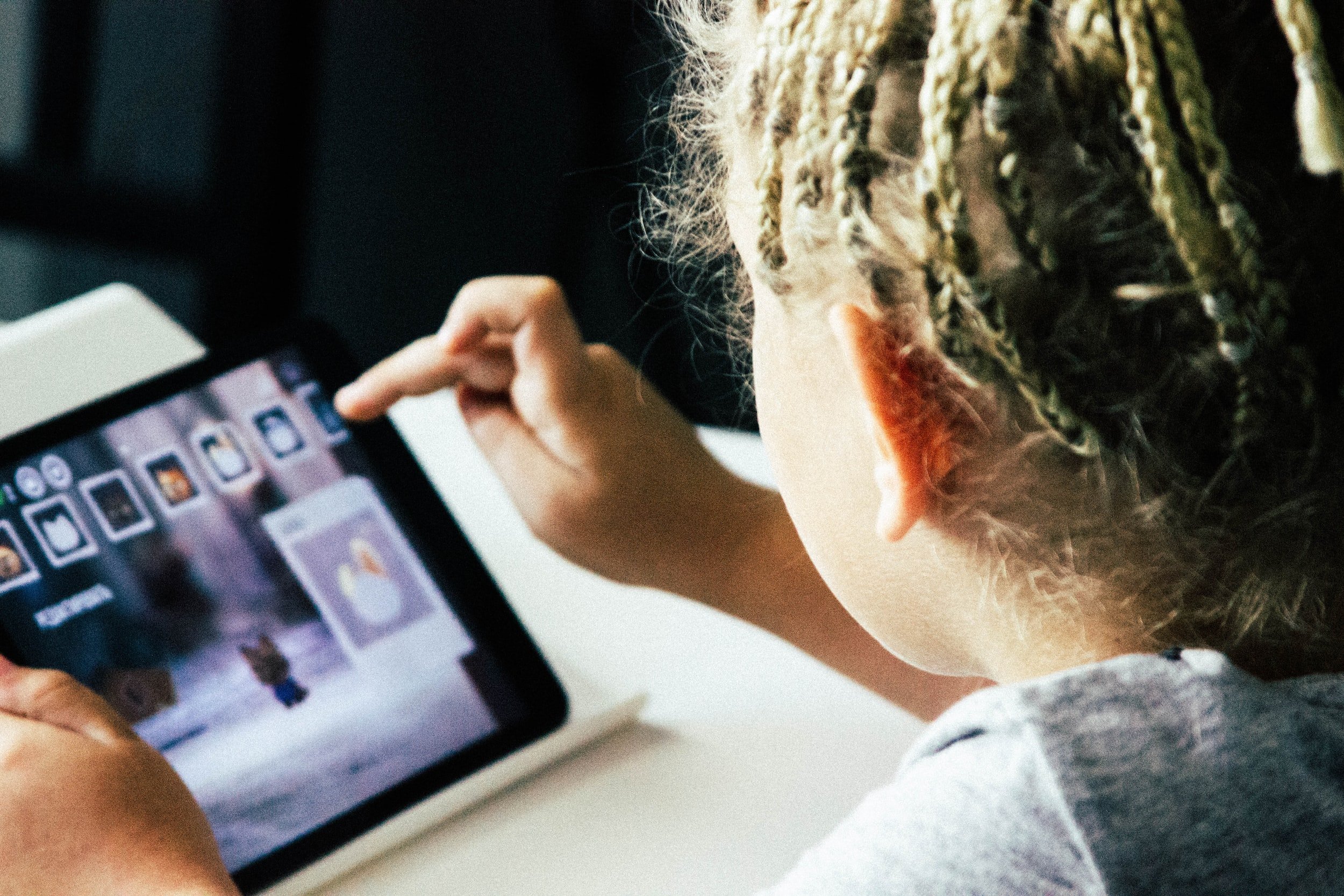Problem Card #2:
Information and Communication Technology
We live in an online world.
The internet is a powerful tool for communication, connection, entertainment and information, but with such access to the world at our fingertips comes a need to be careful and responsible.
How we behave online, who we communicate with and what information we share can have lasting consequences. Learning how to use technology includes; keeping personal details safe, thinking about the types of photos that you post online and how to speak to one another in a friendly way.
Should kids be banned from tech for their own protection? Or...
Is it possible to have the good that comes with this technology without the bad?
This Problem Card introduces the industry issue so that students can devise their own STEM-related solutions.
Explore the Problem Card below, and find teaching resources, including Curriculum Activities, customisable Unit Plans and Marking Rubrics at the bottom of the page.
PROFESSOR ILAN KATZ - UNIVERSITY OF NEW SOUTH WALES
“Australian and international studies on the amount of cyberbullying, estimate that around 20% of children and young people a year are involved in cyberbullying.
With more children having access to the internet and mobile technology, cyberbullying is on the rise and it is right that schools, families and government should attempt to do something about it.
There are specific dangers for young people online that are not found in traditional bullying – in particular, cyberbullying is often publicly and permanently visible, is available 24/7, and can be conducted anonymously even by adults from overseas. The home is no longer a safe haven from bullying.
These dangers make cyberbullying hard to deal with. Sometimes the bullying feeling is overwhelming and never-ending. Combatting cyberbullying is a challenge lots of people are trying to solve. New laws
have been brought in to punish cyber criminals including cyberbullies, which can result in up to 10 years in jail for serious cyberbullying crimes.”
DR RACHEL GRIEVE - UNIVERSITY OF TASMANIA
“A study was completed to find out if social “connectedness” could be experienced from being on Facebook. In the first study, we asked 344 Facebook users to rate their level of social connectedness in the real world, as well the social connectedness they experienced from their Facebook use. The results show that social connectedness isn’t a “one-size-fits-all” idea.
Instead, Facebook connectedness was different from the connectedness people experience face-to- face. This research does suggest Facebook can be an alternative way to engage and connect with others, and that Facebook can act to facilitate better mental health and well- being, particularly for those who find it difficult to connect face-to-face.”
Innovate
Meet some of the academics exploring issues relating to Information and Communications Technology who will provide some industry context.
When you’re done reading, move onto the CREATE section for an introduction of Problems that students can solve.
You can also download a printable, PDF version of the problem card.
NETIQUETTE – ETIQUETTE FOR THE NET!
As you become involved with online discussion groups, you will find that each group has its own accepted rules of behaviour. Here are two important rules to remember:
1. Don’t get involved in personal abuse.
2. Remember that your posts are public. Your friends, your siblings, your parents, your teachers, or your future employer can read them.
These rules are only as good as the users who follow them. What can be done about the people who don’t follow the rules?
Often these people are called ‘trolls’ and their behaviour is never acceptable. Social media platforms like Facebook and Twitter have ways of monitoring trolls and their anti-social behaviour by identifying words that are considered offensive.
Some gaming platforms use bots to alert a user that someone commenting on their stream is being offensive. It is then up to the gamer to decide how to deal with the individual. This might be asking them to stop, or in extreme cases the troll can be blocked.
SHANTON CHANG – UNIVERSITY OF MELBOURNE
“Going online without understanding the basics of how the internet works is like getting behind the wheel without knowing the road rules: you might still get where you are going, but you could be a danger to yourself and those around you. At a certain point, we need to take personal responsibility and educate ourselves about how to use the internet safely.
There is a general lack of understanding about how the internet actually affects us. This is particularly the case since users have started posting user-generated content to the internet, some of it of a private nature.
While some of us are aware of the dangers of the internet, the idea that “it won’t happen to me because I am not doing anything‘dodgy’” is a common one. There is also a generally low level of digital literacy, including basic things like knowing how a web browser works, what sources to trust and where uploaded information is stored. This can mean that people give away personal information without realizing it. This is what criminals rely on and they go to great lengths to make it easy for you to give away information.”
Create
This section will introduce an industry problem related to the Information and Communications Technology Industry that students can choose to address with STEM-related solutions.
Online safety for young people:
How can we help kids learn about information technology and communication and keep them safe online?
Think about:
What could happen if you accidentally give away personal information?
Imagine if there was a mascot who made it easy and fun to learn how to behave online. What would it look like and say?
Can we use digital technology to create something that teaches others and protects them online?
What do you find engaging to learn from?
How does online communication impact our community?
Additional Resources
-

Problem Card
Download a printable, PDF version of this Problem Card.
-

Information and Communication Curriculum Activity
Explore relevant Curriculum Activities
-

Cyberbullying Presentation
Download a PowerPoint Presentation on Cyberbullying for Early Primary Years
-

Rubric
Download an editable marking rubric
-

Unit Plan
Download an editable suggested Unit Plan




